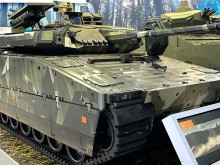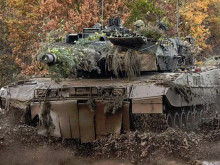The importance and challenges of national strategic communication
In response to the recent creation and filling of the position of National Coordinator for Strategic Communication (StratCom) at the Office of the Government of the Czech Republic, I will attempt to outline the challenges that this position and office will face. On the one hand, there may be the obvious intention to support and streamline the country's own communications. On the other hand, however, it will also be about increasing the resilience and defensibility of the Czech Republic against various forms of hybrid-information influence, or countering Cognitive Warfare. Leaked documents from the Russian Federation and statements from intelligence agencies indicate that the Putin regime is interested in actively seeking out weaknesses in Western democracies and exploiting them to weaken not only individual states but also multinational coalitions and communities. Current knowledge in neuroscience and the development of the information environment, specifically its cyber dimension, create ideal conditions for achieving these goals.

The Government of the Czech Republic is repeatedly criticised for not being able to communicate strategically, for not using the opportunities and tools of StratCom at the level of their potential. The creation of the position of the National StratCom Coordinator may be a signal that top government officials are seriously addressing these criticisms. However, if the role of national StratCom coordinator has only recently come into existence, either such coordination has not been a priority or there has been little to coordinate. However, a national StratCom in the form of a coordination and synchronization function of state communication that is directed towards supporting the objectives of a national (grand) strategy may not exist even in the absence of such a strategy. I believe that many institutions and ministries are yet to study and build the functions and agenda of the StratCom sub-departments. In other words, only after the StratCom ecosystem is established across the strategic level of national governance and the StratCom mindset is adopted in the various communication secretariats will it be possible to begin to gradually set up and optimize an effective national communication system. However, part of setting the necessary StratCom mindset will include creating space for separating national StratCom from party political communication. This is because the national StratCom should ideally coordinate communication to the domestic and foreign populations, or international partners and enemies. Such a setup would be something new for the country and it can be concluded that it will not be achieved quite easily.
At the same time, the cradle of StratCom's creation is the NATO environment, which did not have to deal with the separation of political-party and political-institutional communication. StratCom was the instrument of 'operationalising communication' by which NATO's politically declared interests and objectives were actively transmitted and materialised on the 'battlefield and in the media'. Real activities and actions, and their subsequent media coverage in the campaigns in Afghanistan and Iraq, retroactively influenced the general public's perceptions and attitudes towards NATO. A resonating spiral of actions, declarations and media images was created, which worked towards transparency and credibility. In its early days, however, StratCom in NATO did not have to confront deliberately created negative narratives, industrialized conspiracies and disinformation. The specific and very different structures of NATO and individual nation states also make a difference. NATO is a political-military international organisation where member states have a guaranteed seat at the negotiating table. There is no need to repeatedly seek the favour of the electorate. However, there is a need to protect the credibility, partnership and coherence of the organisation; the Alliance. To build relevant and capable military forces together. Develop new and modern capabilities. To intervene legally and legitimately in international affairs. NATO actions, declarations and media images are thoroughly assessed for consistency with the adopted NATO Strategic Concept and policy. The functioning of StratCom in NATO is a good example for the Czech Armed Forces. It can help to set up the executive elements of information operations (InfoOps), psychological operations (PsyOps), military public affairs (Mil PA), information environment analysis (IEA) but also civil-military cooperation (CIMIC). However, even here it is true that StratCom will only be as good as the strategy it is supposed to communicate. However, how much national StratCom will take from the NATO case study and how much will be taken from the experience of partner countries cannot be estimated.
However, the task of the national StratCom coordinator is likely to involve not only improving its own national communications, but will also extend significantly into ensuring the resilience and defensibility of the Czech Republic. Intelligence statements on the situation in the Czech Republic's information environment (IE) suggest that foreign actors are initiating a range of hostile activities already today. Thus, the Czech Republic is exposed to hybrid information and new forms of influence operations without the necessary preparation and coordination of capabilities to counter them. We are entering an era of permanent confrontation of information societies that use all means to achieve a more advantageous position to advance their strategic interests. The familiar conventional warfare of the industrial societies is beginning to merge with the hitherto unrecognised warfare and confrontation of the developed information societies. Ensuring an adequate response to the manifestations of hybrid-information action within the state does not rest with individual institutions or persons, but requires systemic adjustments and the involvement of society-wide mechanisms. Hybrid-information activities deliberately remain below the threshold of traditionally perceived threats to the state and therefore often do not trigger any society-wide defence mechanisms in democracies. In doing so, it allows attackers to push the boundaries of nationally and internationally tolerated activities and manipulate attitudes and perceptions within the attacked society. The consequences of information-psychological influence are manifested not only in the general population, but also among interest groups across the social structure, or among decision-makers. The mechanism of application of such influence specifically targets the human will, the conceptualisation of an individual's existence in society, and his or her worldview, through influencing the psychological processes of decision-making. By targeted (long-term) manipulation of the understanding and interpretation of the meaning and purpose of events in the real world, the resulting (mis)orientation is prevented or, on the contrary, achieved, in accordance with the needs of the attacker.
Hybrid-information influence is a way of exploiting different understandings and interpretations of real events for conflicting purposes in the political, economic, cultural and social levels of the affected societies. By actively creating partial conflicts, the effect of distrust in the community and the overall direction of society is achieved. Under conditions of mistrust, dissatisfaction, frustration, loss of motivation and efforts to achieve common goals are manifested and accumulated. Society becomes divided. Manifestations of socially undesirable behaviour appear, aggression increases. The loss of agency then prevents a coordinated response to the crisis and directly threatens the resilience of society. Information-psychological activities enter democratic and open societies as a Trojan horse that uses cyberspace to transcend physical boundaries and destroy trust and credibility on a cognitive level. From a defensive perspective, it is an indirect strategy that avoids the defender's strengths, or military escalation and confrontation, and attacks weak and unprotected points. The human mind, unlike cyberspace, cannot be protected by installing a firewall. Thus, the emergence of a national StratCom is likely to be accompanied by the need for comprehensive changes in a range of national policies, the allocation of new agendas and responsibilities, structural and organisational changes, the release of resources, and the setting up of control and governance mechanisms. Moral issues are a separate area. For censorship and other restrictions cannot be opposed in democratic societies. Democracy is based on freedom and honesty, from which trust flows. It will therefore be more a contest of narratives and worldviews based on a thorough knowledge and understanding of the recipients of the communication. Paradoxically, people in democratic societies are better able to cope with armed conflict and military confrontation, which entail violence, suffering and loss of life, than they are to identify with psychological manipulation, deception and influence peddling. Anything manipulative, deceptive and non-transparent is considered dishonest, threatens freedom and induces mistrust.
Thus, the institutionalization of a national StratCom not only presents a complex managerial task in creating the necessary ecosystem, but will also face the delicacy of selecting appropriate contents and forms of communication in its execution. Establishing a national StratCom framework (framework) will require a deep understanding, analysis and self-reflection of where the country and its people have historically come from, where they are today and where we are headed next in various socially significant areas. Such a framework is likely to be non-public. However, it will be the basis for the design of individual communication campaigns to potential beneficiaries. However, it will not be easy to promote national campaigns in the information environment in the Czech Republic and abroad. It can be assumed that the private sector, established organisations and projects competing for the attention of the same audience will not take the new information resource into account. At the same time, digital communication is now the backbone of communication in the European space and is increasingly dominated by the use of technology to manage, assist and analyse it. Digital communication on social networks is a fully developed industry that is not prone to serious and serious debate. Social networks can generate, store and provide access to large amounts of personalised data. They have been designed and continue to evolve to create an ideal environment to persuade the masses, in which computer algorithms manage a vast network of targets simultaneously and tailor specific tactics for selected platforms and recipients. National StratCom will be entering a highly competitive and polarized environment in its communications that pushes for innovation and efficiency gains by maximizing the engagement of computing and machine learning.
















